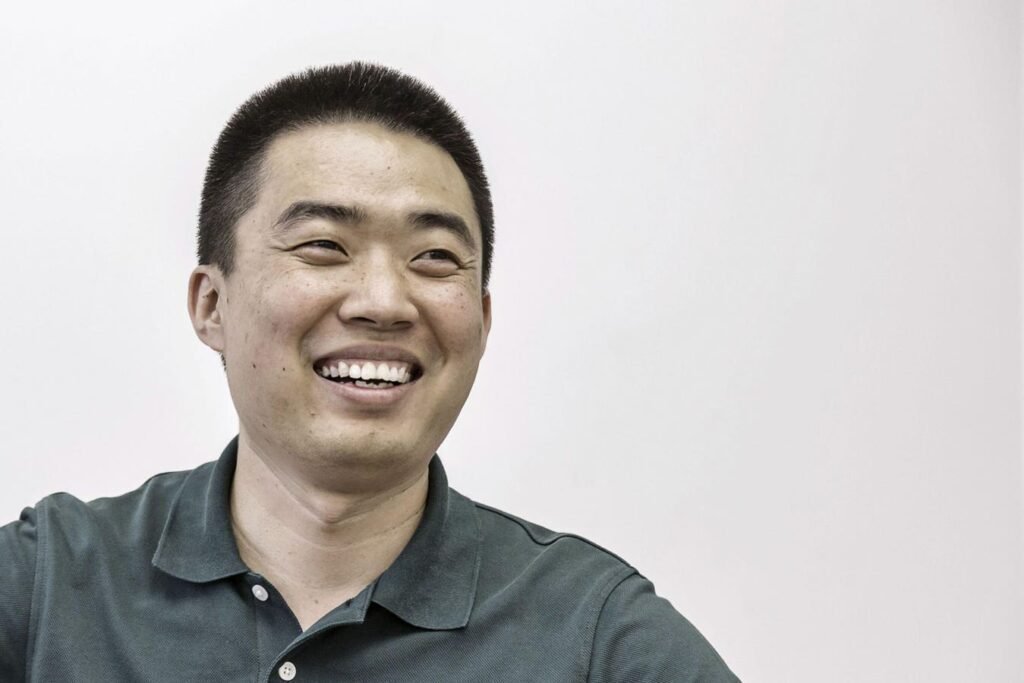Li Xiang, founder of Li Auto.
Li Xiang, chairman and chief executive of electric vehicle maker Li Auto, saw his fortune jump by $1.5 billion to $9.6 billion on Monday as investors approved his discount strategy in the fiercely competitive electric vehicle market of China. But analysts warn that an intensifying price war could eventually hurt Li Auto’s margins down the road.
After releasing fourth-quarter earnings on Monday, shares of the dual-listed company jumped as much as 26% in Hong Kong on Tuesday, after rallying nearly 19% on the Nasdaq overnight. Li, who derives his net worth from a stake in Li Auto, was ranked on Monday as one of the world’s top five wealth gainers, according to Forbes’ real-time billionaires list.
The 42-year-old proves that price cuts have not eaten into Li Auto’s results. To defend against rivals such as Huawei-backed Aito, which targets the same family market as its hybrid SUVs, Li Auto in August began offering discounts of at least 15,000 yuan ($2,000) on its extended-range vehicles that sell more than $42,000.
These hybrids include a gasoline engine so the batteries can be charged on the go. In addition to relieving the stress of range — the cars can travel up to 1,100 kilometers on electricity generated from gas — Li Auto’s hybrids have extra interior space and even a small refrigerator for longer trips.
In the fourth quarter of 2023, sales of its three models — the five-seat Li L7, the six-seat Li L8 and the six-seat Li L9 — more than doubled year-on-year to $5.9 billion. Net income was $810 million, up 2,068% from the previous year. Gross margins on its vehicles reached 23.5%, even higher than Tesla’s 17.6% margin in the same period, and this came after the US EV maker cut prices in several markets, including China . Wang Hanyang, an analyst at Shanghai-based research firm 86Research, says investors are now increasingly convinced of Li Auto’s profit prospects.
“The company started sales promotions in the 4th quarter,” says Wang. “Meanwhile, the company could keep its vehicle profit margin stable. It shows Li Auto’s strong supply chain and cost management capabilities.”
For 2024, billionaire Li aims to sell 800,000 cars, according to a January post on his social media account. If achieved, this target would represent a 113% jump from the 376,030 vehicles delivered in 2023.
The company said Monday on an analyst call that it plans to do that by launching more models. On March 1, Li Auto plans to introduce the Li Mega, an all-electric utility vehicle with a starting price below $84,500. It will rely solely on batteries for power, just like other models that will be released later.
The EV maker believes the increase in charging facilities and advances in battery technologies are alleviating range anxiety among potential customers. The company has previously said it plans to build 3,000 charging stations by the end of 2025. It currently has 330 charging stations across China.
“Management has also provided a clear path to achieve its FY24 (fiscal year 2024) sales target and remains quite self-disciplined on costs and expansion,” wrote Shi Ji, Hong Kong-based analyst at CMB International , on February 27. research note.
But 86Research’s Wang was cautious. He wonders whether Li Auto will be able to maintain profit margins above 20% if it is forced to cut prices further amid tough competition.
This month, billionaire Wang Chuanfu’s BYD, which overtook Tesla as the world’s largest electric vehicle company by January deliveries, cut the price of its popular Qin Plus sedan by $1,400. The EV leader is looking to use its discount strategies to expand in China’s EV market, where growth is slowing. Deliveries are forecast by the China Passenger Car Association to rise 25% to 11 million units this year, up from 36% growth in 2023 and 90% in 2022.
“In my view, the market seems to be overly optimistic after the fourth quarter earnings announcement,” Wang says. “The price war has just started from BYD this year. Every EV company needs to rethink how to balance profitability and sales volume, including Li Auto.”
